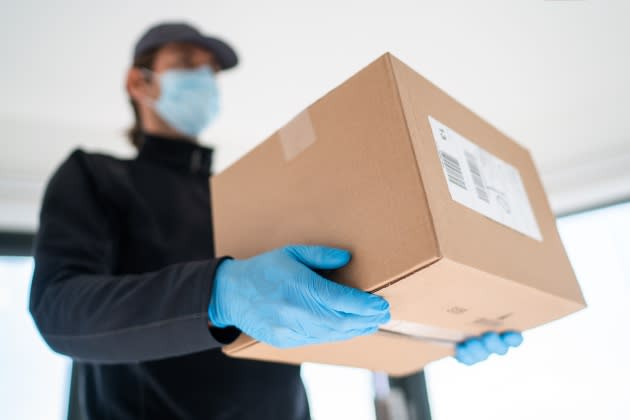New Data Flags Hidden Risks of the Gig Economy in the Last Mile

According to a consumer insights survey by PwC, taken from March to June 2021, “fast/reliable delivery” was the number-one most important attribute of online shopping. For an increasing amount of consumers “fast” has even come to mean having deliveries arrive same-day.
With same-day preferences on the rise, companies have been quick to adopt nontraditional carriers to compete, but for many, it has come at a cost. To better understand these emerging risks and rewards within the last mile, UPS Capital conducted a survey of 500 U.S. business owners with a decision-making role to hire nontraditional carriers and a survey of 1,000 U.S. consumers ages 18 and older.
More from WWD
Unsurprisingly, the survey of U.S. consumers found a sure preference for same-day delivery options. While they may not choose to use it for every order, 63 percent of shoppers said they have made at least one online purchase with same-day delivery. Sixty-three percent of consumers also said they are more likely to shop with a business that offers same-day or next-day delivery options, with a third saying they are “significantly” more likely.
It’s a huge benefit for a company to offer. Forty-one percent of businesses surveyed said last mile/same-day delivery is a revenue driver for their business and 48 percent said their business is using more last-mile/same-day delivery options compared to what they offered in 2020. Fifty-seven percent of businesses also reported last mile/same-day delivery is critical to our business to remain competitive.
When asked about last-mile delivery models, the surveyed businesses reported that 47 percent use a third-party courier network, 38 percent use nontraditional carriers, 30 percent use their own internal fleet and 26 percent use a combination of these options. The most frequently used nontraditional/gig economy carriers were found to be DoorDash (57 percent), Uber Direct (54 percent), Postmates (38 percent), Courier Express (38 percent), Shipt (31 percent), Dropoff (20 percent), Axlehire (13 percent) and Roadie (12 percent).
In terms of customer delivery satisfaction with nontraditional, gig economy carriers, 69 percent of businesses say customer satisfaction is better than with traditional carriers.
Still, while merchants are seeing a great benefit from working with gig economy carriers there are some challenges. Most notably, businesses reported an increase in loss, theft and damages specific to the last mile. In its survey, UPS Capital found that 60 percent of businesses have experienced more damages and losses with last mile or same-day carriers compared to traditional carriers and 64 percent of businesses said they have had to pay out of pocket to cover a lost, stolen, or damaged package when working with the last mile/same-day delivery carrier.
According to business executives, the top pain points in the last mile are finding trustworthy, reliable carriers and partners to work with (39 percent); increases in loss, theft, and damage specific to the last mile (27 percent); finding the right technology solutions that work seamlessly with the current supply chain (27 percent), and increasing costs of the last mile (23 percent).
Consumers are not immune to these increased challenges. Thirty-three percent of consumers said they have had at least one porch piracy-related incident from same-day or next-day shipments within the last year and 14 percent of consumers said they have experienced port pirates multiple times in the last year.
When problems do arise, consumers typically blame the carrier (83 percent), however, 45 percent will place full blame on the carrier while 38 percent blame both the merchant and the carrier. And when the consumer does blame the merchant, 66 percent of survey respondents said they would either be unlikely to buy or simply never buy again from the business.
UPS Capital said one solution to issues at the last mile would be insurance options. Unfortunately, it is not widely offered. Sixty-four percent of businesses don’t have third-party insurance protections or are relying on the carrier’s liability/terms and conditions and 43 percent of businesses say just under half of their claims are getting paid.
Still, it’s a big opportunity, with 95 percent of businesses saying they would be more likely to select the last mile/same-day delivery carrier that offers shipping insurance protection with clear terms and conditions that include coverage for lost, damaged, or porch-pirated shipments. Another 88 percent of consumers surveyed said they would also be more willing to work with a merchant that offers peace of mind and protection for same-day or next-day shipments.
FOR MORE WWD BUSINESS NEWS:
Are Consumers Laughing at Your Brand?


